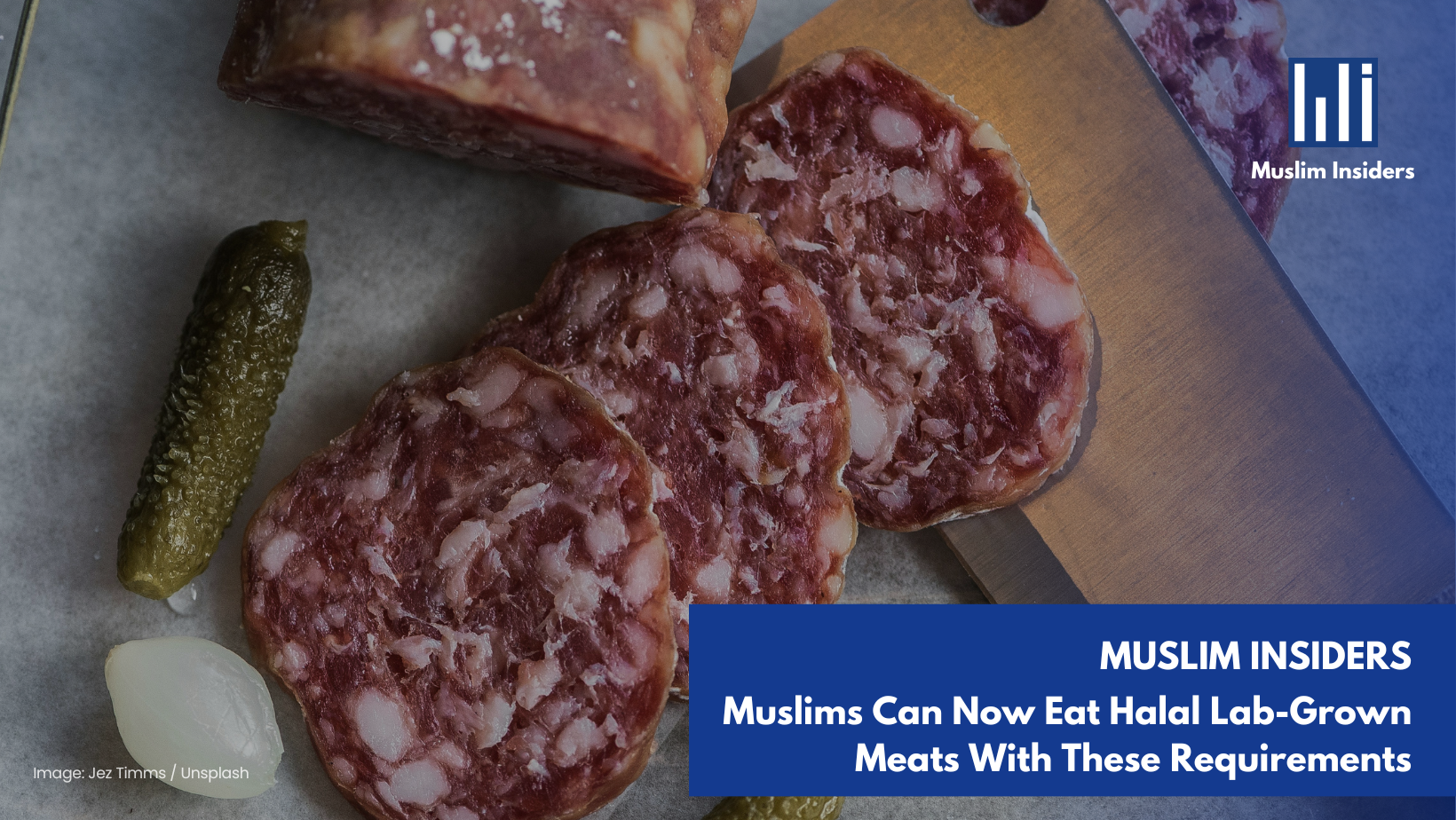
The Islamic Religious Council of Singapore (MUIS) just announced that cultivated meat or lab-grown meat is halal, with conditions. “The committee decided that it is permissible, it is halal, to consume lab-cultivated meat where the cells are from animals that are halal or permissible in Islam and where the final ingredients do not contain any non-halal components,” said Dr Nazirudin Mohd Nasir, the Mufti of Singapore.
What are lab-grown meats?
Also known as cultivated meat, lab-grown meats are made and sourced from animal cells, using the building blocks for muscle and fat. It mimics the biological process in animals, making it the same as regular meat at the cellular level. With this method, meat can be created without the need to raise and slaughter the entire animal.
How is it being made?
According to Eufic, there are several steps. It involves taking stem cells as a sample from a living animal. The stem cells will develop later into certain types of cells in the body, such as the blood or liver cells. It is developed in a bioreactor, a large container and provided with nutrients so they can grow or multiply. The cells are nourished with a mixture of basic nutrients like amino acids, glucose, vitamins, and salts, along with growth factors and proteins, similar to what happens in an animal’s body.
With the nutrient mix and using cues from a scaffolding structure, the immature cells transform into the various components of meat, such as skeletal muscle, fat, and connective tissues. Once this transformation occurs, the cells are collected, processed, and packaged into the final meat products. The entire process typically takes 2–8 weeks, depending on the type of meat being produced.
Is there non-Halal lab-grown meat?
Yes, if the cells are from non-Halal sources and non-Halal ingredients are used to feed them.
What are the requirements for Halal lab-grown meats?
The requirements for Halal lab-grown meat might be as simple as you think. As long as Halal nutrients are given to the cultured animal cells and the animal cells are from Halal animals, they will produce Halal lab-grown meats. Nutrients given to cultured animal cells must avoid forbidden substances for Muslims to consume, including spilled blood, alcohol, or pig-derived materials.
For the meat, which is the source of the cells, to be halal, it should follow Islamic slaughtering rules. According to Halal Malaysia, normal Halal meats must comply with these requirements for Muslims to consume:
- The animal should still be alive or deemed to be alive at the time of slaughter
- The slaughterman should be a Muslim
- The slaughterman should do it with intention (niyyah) in God’s name and be aware of his action
- Using tasmiyah (saying ‘Bismillah Allahu Akbar) immediately before slaughtering
- Using sharp and clean knives
- From a halal species (not a carnivorous animal, swine, birds of prey or vermin)
- Animals must be healthy
- Only perform it once, but ‘sawing action’ is permissible as long the animal is not being lifted
- Begin halal slaughter with an incision below the glottis for most animals and after the glottis for long-necked animals.
- The slaughter process must sever the trachea, oesophagus, carotid arteries, and jugular veins to ensure quick bleeding and the animal’s swift death.
- Poultry that is deemed dead from halal slaughter undergoes scalding.
- Animals that are dead due to stunning are considered non-halal
- No intervention to hasten the animal’s death during halal slaughter is allowed, except with approval from the Malaysian Fatwa Council
Why should there be the existence of Halal lab-grown meats?
According to Eufic, the reasons meats are being lab-grown are due to animal welfare, food safety and the sustainable production of protein. However, it is still not clear how lab-meat will be more environmentally sustainable.
Hence, Halal-lab meat is derived from animal cells, which come from Halal-slaughtered animals, which are also Halal.




